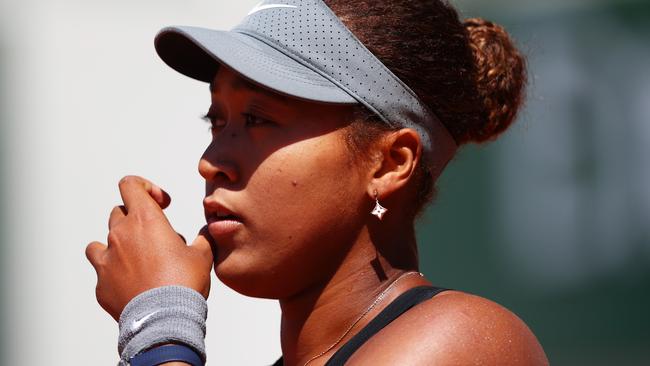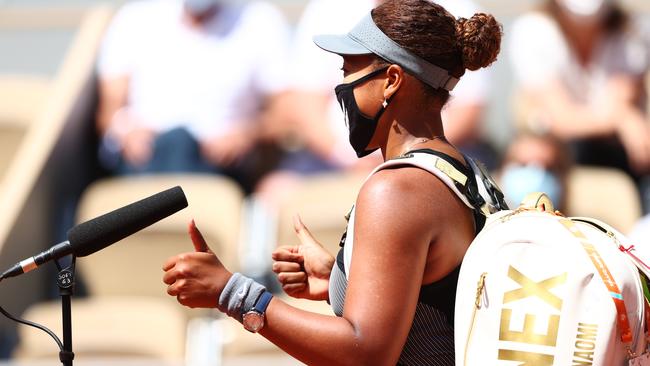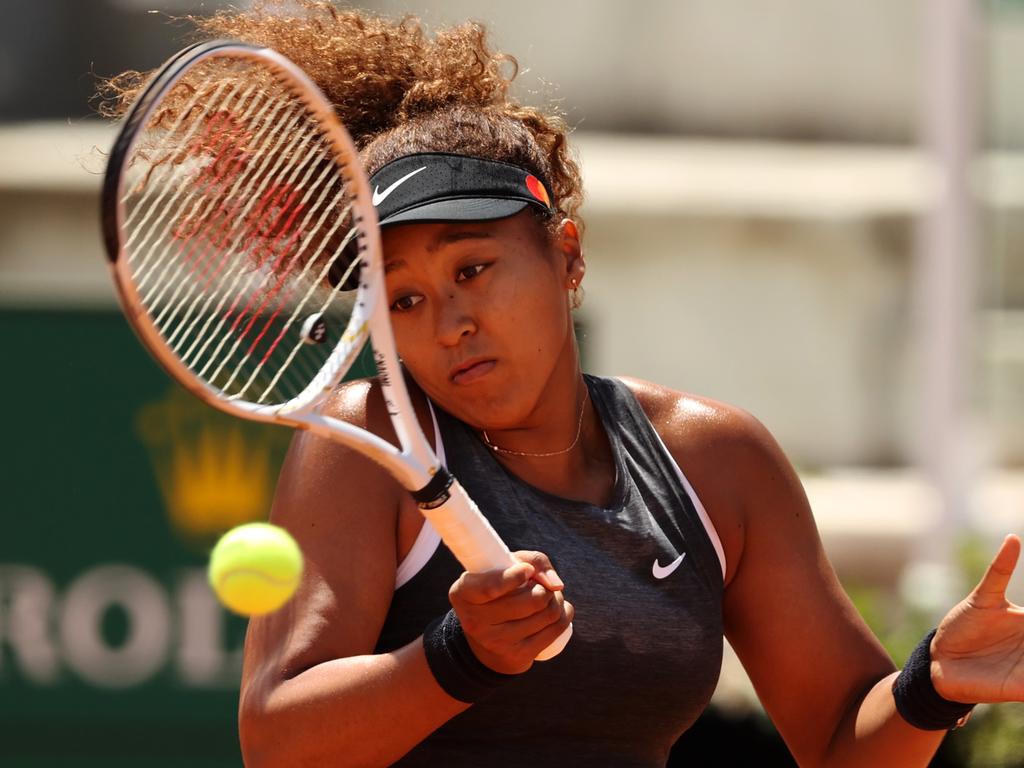Naomi Osaka faces grand slam ban over media interview boycott
Naomi Osaka’s unprecedented move looks to have backfired, amid a rare show of unity from hard line tennis chiefs and a backlash among players.

The signature of the All England Club chairman, Ian Hewitt, at the bottom of the 529-word statement on Naomi Osaka is instructive in itself as to the hard line stance taken by tennis chiefs on her unparalleled media boycott.
Normally, the sedate souls in charge of running Wimbledon prefer to do all they can to avoid wading into any controversies, particularly when it involves something away from their patch. This time, they felt it a necessity to stand alongside their grand-slam counterparts and issue a remarkable warning to one of the sport’s biggest stars, including stern threats of a disqualification and suspension.
It is rare for there to be such unity in a sport that effectively has seven different governing bodies – Wimbledon, the Australian Open, the US Open, the French Open, the ATP, the WTA and the International Tennis Federation – but officials realised that a joint statement was essential to set an example and send out a message to anyone else who might be tempted to skip their mandatory press duties.
The timing of the statement’s release even shed a light into the discussions behind the scenes. Normally it is not until the day after a transgression at a grand-slam event that the disciplinary action is announced, but Osaka’s forewarning on Thursday gave officials three days to decide on the fine and prepare the words.
When she confirmed her intentions by refusing a press conference after beating the Romanian Patricia Maria Tig 6-4, 7-6 (7-4) in the first round yesterday, it took no more than four hours for the outcome to be revealed.
Aware that they could not be seen to dismiss mental health issues, the grand-slams made clear that attempts to discuss Osaka’s concerns with her had been rebuffed. The statement insisted that mental health was of the “utmost importance” and that there were “significant resources dedicated to player wellbeing”, though this required engagement from players.
“The Roland Garros teams asked her to reconsider her position and tried unsuccessfully to speak with her to check on her wellbeing, understand the specifics of her issue and what might be done to address it on site,” the statement read.
“Following the lack of engagement by Naomi Osaka, the Australian Open, Roland Garros, Wimbledon and the US Open jointly wrote to her to check on her wellbeing and offer support, underline their commitment to all athletes’ wellbeing and suggest dialogue on the issues. She was also reminded of her obligations, the consequences of not meeting them and that rules should equally apply to all players.”

As the rule book has a specific section on mandatory press conferences, officials had the power to fine her up to $US20,000 ($25,000). It is likely, however, that her acceptance of an on-court interview yesterday was taken into account when $US15,000 was agreed upon. Unsurprisingly, her boycott was not broached by the questioner Fabrice Santoro.
“I am really glad that I won,” Osaka said, before adding on her clay-court form: “I’d say it is a work in progress. Hopefully the more I play the better I get.”
It will be of much relief to organisers that no one else has followed Osaka in refusing to hold press conferences. Rafael Nadal and Ashleigh Barty are among several players to have talked up the importance of facing the media, and yesterday’s statement by the grand-slams stressed that it would be unfair to allow Osaka to potentially gain a competitive advantage by avoiding the standard post-match interviews.
“We want to underline that rules are in place to ensure all players are treated exactly the same, no matter their stature, beliefs or achievement,” the statement said.
It will now be fascinating to see what Osaka does after her second-round match on Wednesday. The nature of the grand-slams’ statement was said to be the talk of the locker room, and there appears to be little sympathy for her.
“Why should she be treated any differently to the other players?" Mats Wilander, the former world No 1, told Eurosport.
“She definitely has to do press. We are all struggling with mental issues these days during the pandemic, but Naomi, I think you need to reconsider or, I would say, don’t play in the tournament until you are ready to face the job.”
The Times







To join the conversation, please log in. Don't have an account? Register
Join the conversation, you are commenting as Logout